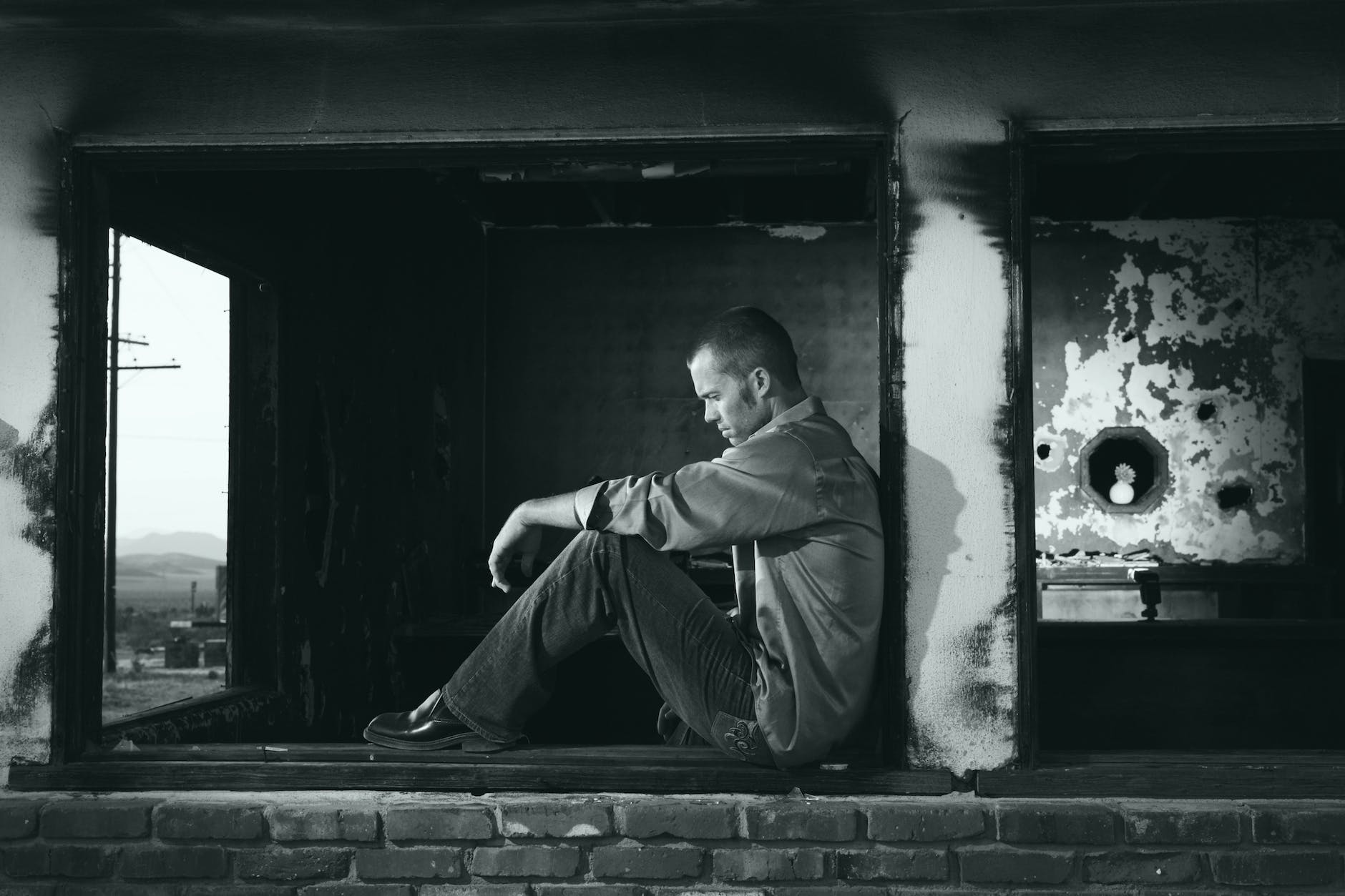A Journey of Faith, Transformation, and Recovery with James as Your Guide.
Recovery and Having Shame and Guilt
In recovery, shame and guilt are a normal and often necessary part of the process. Let’s be honest; if there is a level of addiction to something that leads one to realize they at least need to consider recovery, there are probably a few things that person should be ashamed of and feel guilty about.
On the other hand, if there is no plan to release this building pressure of shame and guilt, it can become another destructive and, more specifically, self-destructive force in our lives. Another soul-eating sickness added to all the others.
Shame and guilt are uncomfortable, and as a person who believes in an almighty creator who creates with purpose, I do not think that was an accident. We must all accept one huge life concept: PAIN CAN BE BAD OR GOOD, DEPENDING ON THE RESPONSE!
Many of us process the mere idea of any pain and discomfort as an evil that must be avoided at all costs. But pain and discomfort are urgent indicators that something is wrong and directs us to where the response needs to be focused.

Recovery Needs Discomfort and Pain
Imagine if you could not feel physical pain at all. This hypothetical, pain-free person wanders over to talk with their favorite chef and comfortably leans on a surface while having a funny conversation. Then after a while starts to smell something burning and gets a sense, the chef is burning something until this person notices the smoke coming from their hand. Not being prone to panic, that person slowly glances over to see that their hand is leaning upon the stove’s burner, which is on, and their hand is not only burning but, at this point, has caught fire.
If this person could feel the pain, they would have felt the pain of hot immediately and would have instantly recoiled from the burner, possibly right before even touching it. The pain caused by the heat would not, in that case, be a “bad” because it would have warned them and immediately sent an urgent distress signal to their brain to do something urgently and quickly to avoid terrible consequences. This critical signal to demand an immediate response is sent even before the consciousness has had time to figure out the problem and the best response.
Think of it as if it were the check engine light on your car, but it smacked you in the face every time it came on to get your attention and kept hitting you until you did something about it. For some of us, the solution would be to take painkillers so we do not feel the smacks anymore or to turn the music up as a distraction from the slaps and the light. Some of us even would just put the gas pedal on the floor and run the car into a pole to avoid the slaps.
Wouldn’t it be better to take the car to a mechanic and get the problem fixed? There may be a cost, and it may take time and require a detour from where I am going. It may make where I am going no longer make sense, and I may have to go someplace completely different in the end, but the problem would be fixed.
Isn’t the actual problem that this pain we think is a “bad” actually is a “blessing” that we should respond to before the problem gets worse? The discomfort and pain are the “indicators” that reveal the issues and often give clues as to where the problem may be.

The Book of James and Enduring Discomfort
At the beginning of the Book of James, in James 1:2-4 there is a massive revelation that discomfort is a place where a lot of education and change may be revealed.
2 Consider it all joy, my brothers and sisters, when you encounter various trials, 3 knowing that the testing of your faith produces endurance. 4 And let endurance have its perfect result, so that you may be perfect and complete, lacking in nothing.
Interestingly, in line with contemporary Jewish literature, the use of the word for “perfect” focuses on the completeness of character or something more in line with the idea of maturity. This Jewish man writing in a Jewish context to a church membership that would have mostly been born Jewish this early in church history (less than 20 years after Jesus was crucified) would assume this understanding of the concept of “perfect” would be considered the norm. We can assume perfect here means completeness of character.
So, what do we learn here about those who encounter discomfort or pain? The first thing we learn is to “consider it all joy.” This is not some corny, “glass half full,” “one-with-the-universe” soundbite that is just thrown around to sound super spiritual.
This is a vital part of this entire passage. In the context of this discourse, discomfort is an indicator of opportunity. The implications are that we are not whole in character or complete and that we are lacking something. We should find the discomfort a joy because it screams that we have an opportunity to become more whole in character and complete and get something we lack. After all, isn’t it hard to fix something we do not know is wrong?
Next, we learn that there is a deep emphasis on “faith,” and that is an important place that is being tested. Even the idea that discomfort is an indicator of opportunity and not just “bad” because our default thinking about discomfort is that it is all inherently “bad” is an act of “faith” that has to be held on to. We “count it as joy” by “faith,” and then we can respond by “faith” with faith-based action.

The Book of James: Faith Leads to Action
Now we have to look at what James feels he is communicating when he says the word “faith” that would lead to this “faith” producing endurance.
17 In the same way, faith also, if it has no works, is dead, being by itself.
“Faith” produces action, and if one persists in that action in the areas indicated by the discomfort, that sustaining is endurance being built. That endurance means that a person started the action from faith because of the discomfort, but at some point, it moved from a thing that had to be done to a habit and, at another point, just became a part of who the person is. That is to say that the discomfort can lead to a change in a person entirely through faith. When those right and sustained actions become a new lifestyle, they have become endurance. Discomfort, in faith, can indicate an opportunity to be changed for the good, “Consider it a joy.”
That is the perfect result that will make you more whole in character or more complete and less lacking in some areas.

In Recovery, Guilt and Shame Can Be Opportunities or Destroyers
Back to shame and guilt as an indicator of opportunity. When sustained for long periods, these feelings have been shown to lead to poor recovery outcomes and contribute to other significant issues such as depression. The other side is, without guilt and shame, what drives this recovery process specifically to the change opportunities we describe here?
A shame or guilt that leads to you being more whole in character, or more complete and less lacking in some area, has a finish line or at least a point of less pressure on you. A shame or guilt leading to no change or action is an ignored indicator eating at your soul. That is a shame or guilt leading to destruction. In my analogy of the check engine light that slaps you in the face, it is just continuing to drive around with the indicator light on and the car constantly slapping you in the face.
It bothers you more and more over time and eventually becomes unbearable to the point of breaking you.
6 But He gives a greater grace. Therefore it says, “God is opposed to the proud, but gives grace to the humble.” 7 Submit therefore to God. But resist the devil, and he will flee from you. 8 Come close to God and He will come close to you. Cleanse your hands, you sinners; and purify your hearts, you double-minded. 9 Be miserable, and mourn, and weep; let your laughter be turned into mourning, and your joy into gloom. 10 Humble yourselves in the presence of the Lord, and He will exalt you.
There is much hope in these feelings of shame and guilt that indicates great opportunity. That all starts with humbly drawing near to and submitting to God. Then you have to take that faith and begin resisting evil and cleansing your hands from your actions and your hearts from the motives behind those actions.
The reality of what needs to be changed and cleansed in your heart and from your actions comes from the realization of things that you realize are wrong in your actions and your heart and have a desperate need to change.
That miserable, morn and weep, joy to gloom part is the shame and guilt that is natural to realizing that actions and things in your own heart are on some level evil and desperately need to be changed. The shame and guilt also fuel the desperation to change, making a person desperate enough to endure the painful change process.
That person has to have sufficient motivation to endure the change process past the point of:
- “having to do” the actions to
- “wanting to do” the actions to
- “the new actions becoming a habit,”
Sustaining this for so long that these actions become simply a part of who that person is. That change fueled by faith is central to recovery and central to the Book of James and as such central to a faith journey (even though this crucial part of the faith journey is often missed and rarely discussed)



